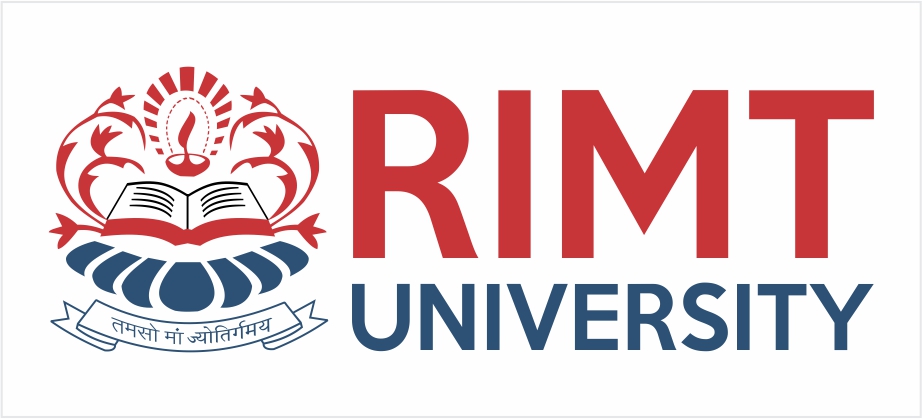About Programme
The Electrical Engineering has been playing a vital role in producing scientists and technologists of the highest caliber. The ever challenging needs of technological excellence in all the major areas of Electrical Engineering. RIMT’s strong u programme in Electrical Engineering is complemented by world class infrastructure & teaching facilities. The infrastructure and lab facilities are up to the international standards and provide adequate opportunities for students and researchers to learn and innovate the technological skills.
Eligibility & Admission
Passed Diploma examination with at least 45% marks in any branch of Engineering and Technology.
| PROGRAM FEE | AMOUNT |
|---|---|
| Application Fee (One Time) | 1,000/-INR |
| Registration Fee (One Time) | 15,000/-INR |
| Security (One Time – Refundable) | 8,000/-INR |
| Semester Fee | 70,000/-INR |
Scholarship
| Marks in Diploma | Scholarship Per Semester | Applicable Fee After Scholarship Per Semester |
| 60% – 70% | 20% | 56,000/-INR |
| More than 70% – 80% | 30% | 49,000/-INR |
| More than 80% – 90% | 50% | 35,000/-INR |
| More than 90% – 100% | 0% | 0/-INR |
| Disability Level | Scholarship Per Semester | Applicable Fee After Scholarship Per Semester |
| 90% & Above 90% | 30% | 49,000/-INR |
| 75% & Below 90% | 20% | 56,000/-INR |
| 50% & Below 75% | 10% | 63,000/-INR |
| Category | Scholarship Per Semester | Applicable Fee After Scholarship Per Semester |
| Wards of Param Veer Chakra | 30% | 49,000/-INR |
| Winners of Maha Veer Chakra | 20% | 56,000/-INR |
| Winners of Veer Chakra | 10% | 63,000/-INR |
| Work Tenure | Scholarship Per Semester | Applicable Fee After Scholarship Per Semester |
| More than 5 years continuous service | 30% | 49,000/-INR |
| 1 Year – 5 Years continuous Service | 20% | 56,000/-INR |
| Category | Scholarship Per Semester | Applicable Fee After Scholarship Per Semester |
| Single girl child | 20% | 56,000/-INR |
| Category | Scholarship Per Semester | Applicable Fee After Scholarship Per Semester |
| Parentless | 30% | 49,000/-INR |
| Either fatherless or motherless provided the annual family income is less than 2.5 lakh | 20% | 56,000/-INR |
Programme Education Objectives (PEOs)
- PEO1 Establish their careers in the field of Electrical Engineering and related areas, providing innovative and effective solutions.
- PEO2 To provide students with a solid foundation in mathematical, scientific and engineering fundamentals required to solve engineering problems and also to pursue higher studies.
- PEO3 To train students with good scientific and engineering breadth so as to understand, analyze, design, and create novel products and solutions for the real-life problems.
- PEO4 To provide students with an academic environment aware of excellence, leadership, ethical code and guidelines, and the life-long learning needed for a successful professional career.
Programme Outcomes (POs)
- PO1 Engineering knowledge: Apply the knowledge of mathematics, science, engineering fundamentals, and an engineering specialization to the solution of complex engineering problems.
- PO2 Problem analysis: Identify, formulate, review research literature, and analyze complex engineering problems reaching substantiated conclusions using first principles of mathematics, natural sciences, and engineering sciences.
- PO3 Design/development of solutions: Design solutions for complex engineering problems and design system components or processes that meet the specified needs with appropriate consideration for the public health and safety, and the cultural, societal, and environmental considerations.
- PO4 Conduct investigations of complex problems: Use research-based knowledge and research methods including design of experiments, analysis and interpretation of data, and synthesis of the information to provide valid conclusions.
- PO5 Modern tool usage: Create, select, and apply appropriate techniques, resources, and modern engineering and IT tools including prediction and modelling to complex engineering activities with an understanding of the limitations.
- PO6 The engineer and society: Apply reasoning informed by the contextual knowledge to assess societal, health, safety, legal and cultural issues and the consequent responsibilities relevant to the professional engineering practice
- PO7 Environment and sustainability: Understand the impact of the professional engineering solutions in societal and environmental contexts, and demonstrate the knowledge of, and need for sustainable development.
- PO8 Apply ethical principles and commit to professional ethics and responsibilities and norms of the engineering practice.
- PO9 Individual and team work: Function effectively as an individual, and as a member or leader in diverse teams, and in multidisciplinary settings.
- PO10 Communication: Communicate effectively on complex engineering activities with the engineering community and with society at large, such as, being able to comprehend and write effective reports and design documentation, make effective presentations, and give and receive clear instructions.
- PO11 Project management and finance: Demonstrate knowledge and understanding of the engineering and management principles and apply these to one’s own work, as a member and leader in a team, to manage projects and in multidisciplinary environments.
- PO12 Life-long learning: Recognize the need for, and have the preparation and ability to engage in independent and life-long learning in the broadest context of technological change.
Programme Specific Outcomes (PSOs)
- PSO1 Apply principles of engineering, electronics and computer science; physics, chemistry, environmental science, mathematics (including differential equations, discrete mathematics, linear algebra and complex variables) and laboratory skills for building, testing, operation and maintenance of high currents electrical systems, such as, electrical machines, power and energy systems.
- PSO2 Model, analyse, design, and realize physical systems, components or processes related to high current electrical engineering systems.
Career Prospects
After completing B.Tech in Electrical Engineering, its possible for the students to choose for ME/M.Tech course in subjects like electrical devices and power systems engineering, electrical energy system engineering, power and energy system engineering and power apparatus and system engineering. Job opportunities for these graduates are available in companies such as SAIL, NHPC and NTC.
